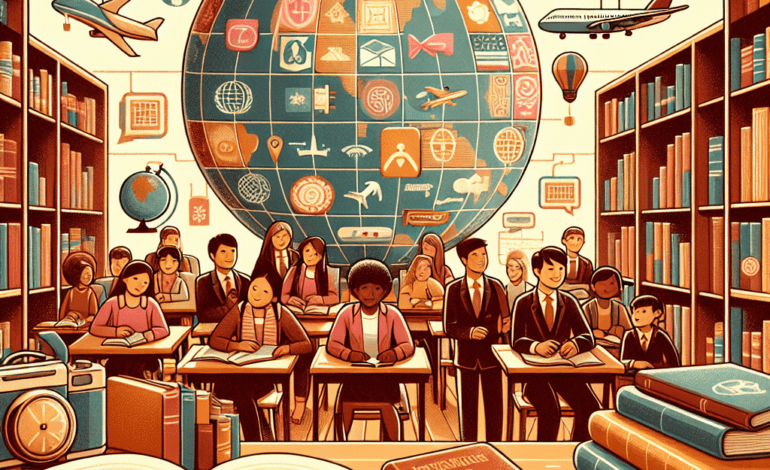Global Education Trends: Preparing Students for International Careers

Table of Contents
- Introduction
- 1. Technological Integration
- 2. Curriculum Internationalization
- 3. Soft Skills Development
- 4. Language Proficiency
- 5. Policy Changes
- 6. Role of Mentorship
- Conclusion
- FAQs
Introduction
As the world becomes increasingly interconnected, the landscape of education is continuously evolving. One of the major driving forces behind these changes is the need to prepare students for international careers. With the advent of globalization, students are now expected to possess a diverse set of skills that transcend traditional academic knowledge. This article delves into the global education trends that are shaping the future of learning and setting students up for success in the international job market.
1. Technological Integration
In the 21st century, technology has become a cornerstone of education. From virtual classrooms to AI-driven personalized learning, the integration of technology into curricula is enabling students to gain skills that are increasingly relevant in the global job market. Tools such as virtual reality (VR) and augmented reality (AR) are providing immersive learning experiences that bridge the gap between theoretical knowledge and practical application.
2. Curriculum Internationalization
Educators are now recognizing the need to offer curricula that reflect a global perspective. Schools and universities are incorporating international case studies, exchange programs, and courses focused on global issues such as climate change and international trade. By doing so, students gain a broader understanding of the world and are better prepared to navigate the complexities of international careers.
3. Soft Skills Development
While technical skills are essential, soft skills such as communication, teamwork, and emotional intelligence are equally critical for success in international careers. Educational institutions are increasingly incorporating activities that foster these skills. For example, group projects, extracurricular activities, and community service initiatives are designed to build interpersonal and leadership skills.
4. Language Proficiency
In a globalized world, proficiency in multiple languages is a significant asset. Many schools are emphasizing the importance of learning foreign languages from an early age. Bilingual or multilingual programs not only enhance cognitive abilities but also open up a plethora of international career opportunities for students.
5. Policy Changes
Governments and educational bodies worldwide are implementing policies that support the internationalization of education. These policies may include funding for study abroad programs, partnerships with international institutions, or incentives for language learning. Such policy changes are facilitating the creation of a more globally-minded student body.
6. Role of Mentorship
Mentorship plays a crucial role in preparing students for international careers. Experienced professionals can provide valuable insights into the dynamics of working in a global context. Educational institutions are increasingly facilitating mentorship programs that connect students with industry experts, enabling them to gain practical knowledge and build a network of professional contacts.
Conclusion
The trends in global education are largely driven by the need to prepare students for a rapidly evolving job market that knows no borders. Technological advancements, curriculum internationalization, development of soft skills, language proficiency, favorable policy shifts, and mentorship programs are all instrumental in equipping students with the tools they need to succeed on an international scale. As these trends continue to evolve, the future of education looks promising, with students becoming better prepared to take on the challenges and opportunities of a globalized world.
FAQs
1. What is the significance of integrating technology into education?
Technological integration enables personalized learning, provides access to a vast array of resources, and prepares students for a technologically-driven job market.
2. How does curriculum internationalization benefit students?
Internationalizing the curriculum provides students with a broader understanding of global issues, enhances cultural awareness, and prepares them for working in diverse environments.
3. Why are soft skills important for international careers?
Soft skills such as communication, teamwork, and emotional intelligence are essential for navigating the multicultural and collaborative nature of international work environments.
4. How can language proficiency impact career opportunities?
Proficiency in multiple languages opens up a wider range of job opportunities, enables better communication with international colleagues, and increases employability in global firms.
5. What role do government policies play in global education trends?
Government policies can provide funding, incentives, and structural changes that support the internationalization of education, making it easier for students to gain global skills and experience.
6. How can mentorship programs benefit students?
Mentorship programs offer practical insights, career guidance, and opportunities to build professional networks, all of which are invaluable for preparing students for international careers.



